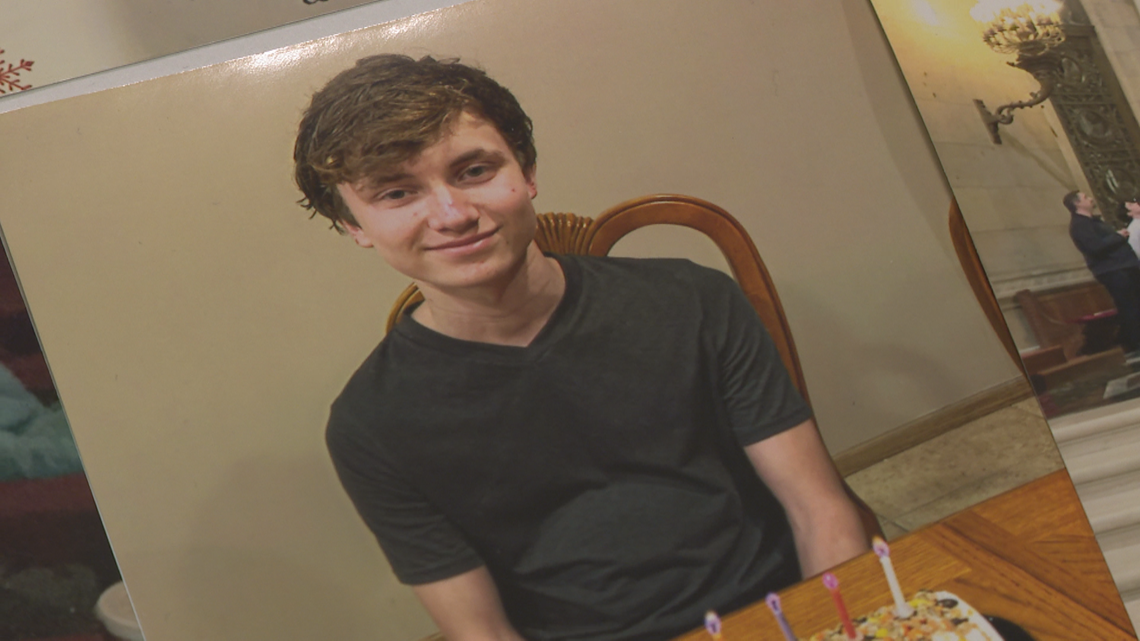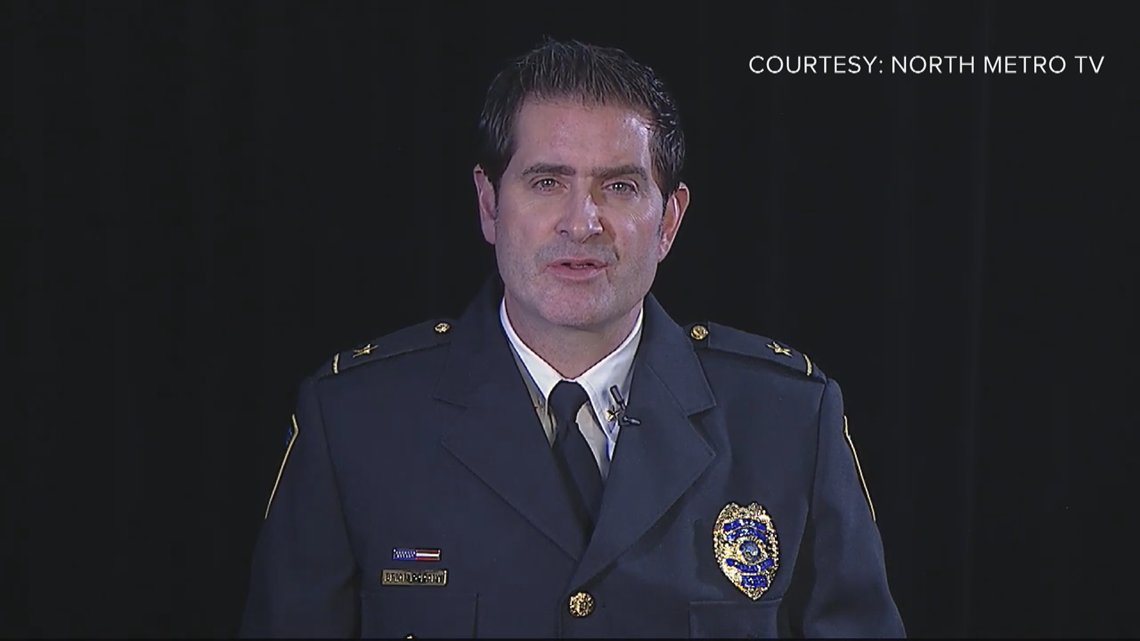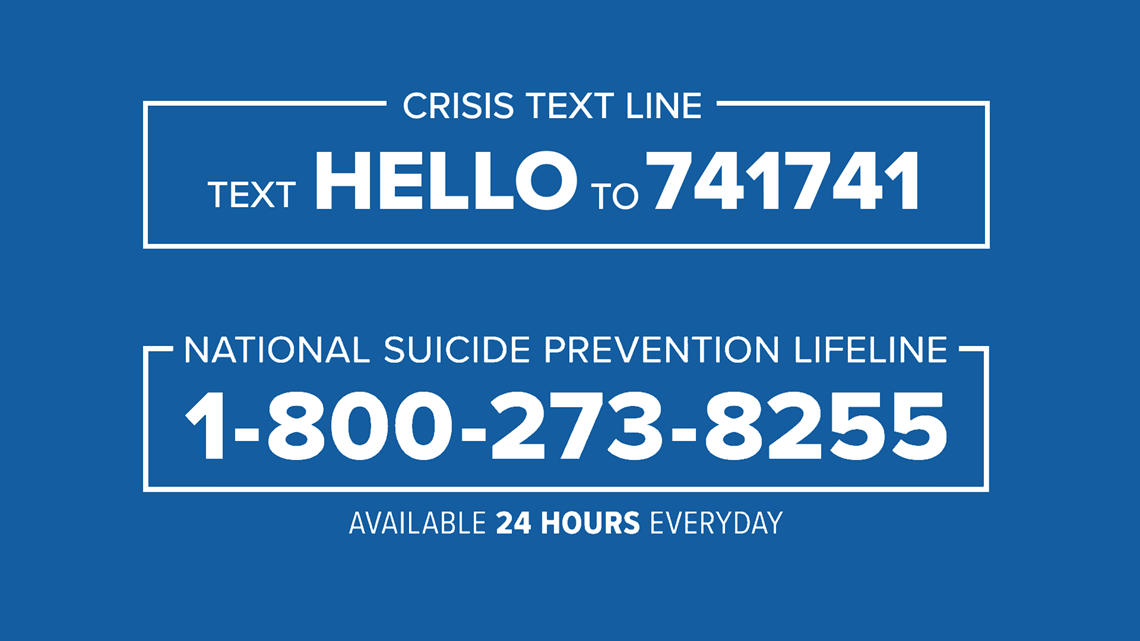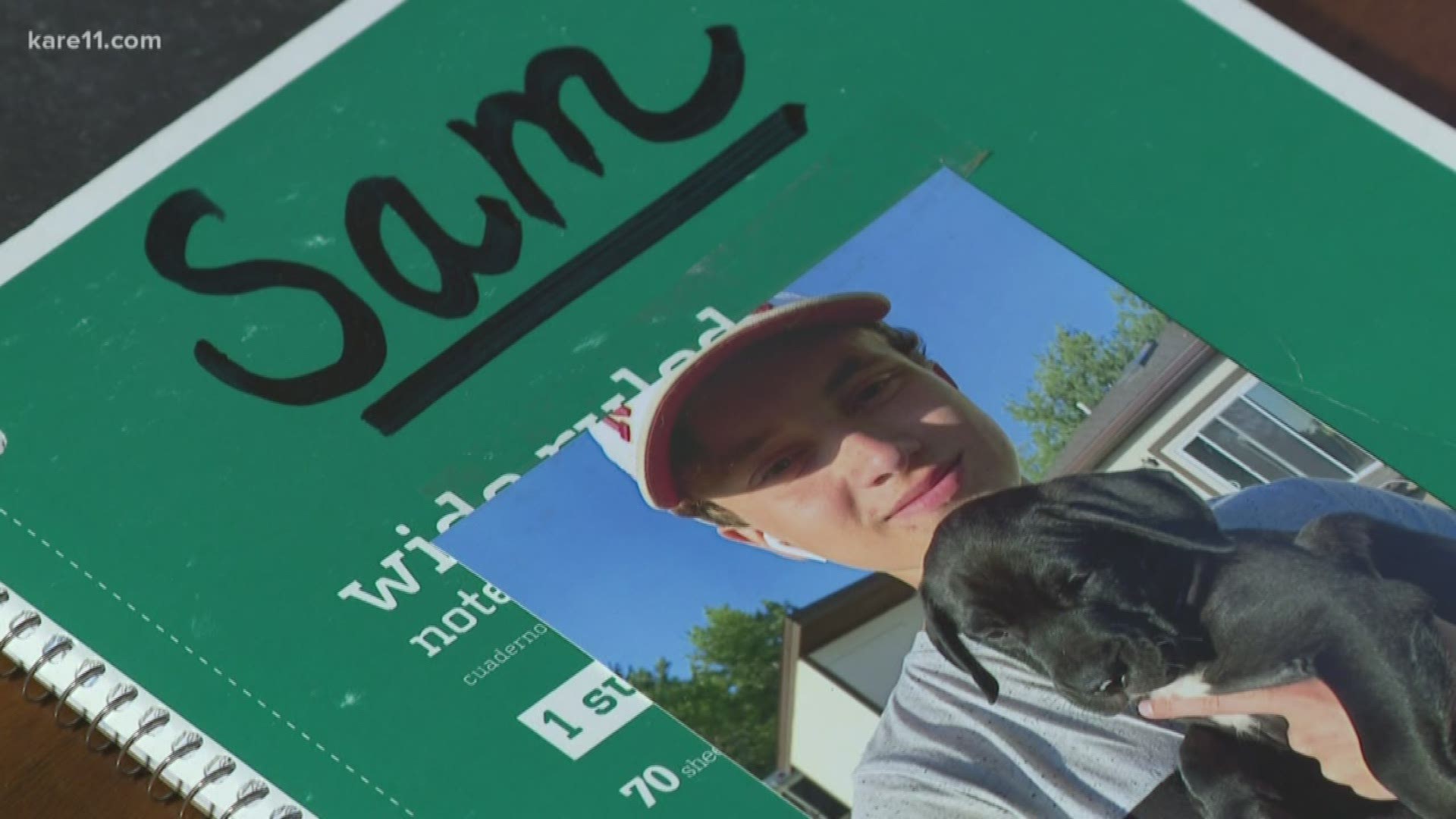BLAINE, Minn. — Janet Casperson looked at the photo boards filled with pictures of her son, Sam, and recalled her memories.
"First day of school was up here," she said, pointing to a picture of her son's last first day of school.
In many of the pictures, Sam, who would have turned 17 on February 22, is wearing a Florida State Seminoles hat.
"My brother sent it up to him from Florida and he just had some kind of connection to it," Casperson said. "I don't know. He loved it. Wore it all the time."
But on this day, the hat sat on Casperson's coffee table, next to a poster made by Sam's friends after his death.
"That's all we have left is his memories and the pictures," Casperson said.
Sam took his own life on January 2. He is one of six high school-age teens in the Blaine area to die by suicide since the late summer. His mother says Sam was friends with three of those teens.
For context, in Anoka County from 2014 to 2018, 12 teens, ages 14 to 18, died by suicide, according to numbers from the Minnesota Department of Health.
The recent deaths amount to half that in just months.
"I feel like it's a domino effect with these kids lately," Casperson said. "It was hard enough losing my own son, but knowing that these other families are going through this ... I can't stand to hear about another family going through this, because I know what we've gone through and it's heartbreaking. I will do whatever I have to do to get the word out. Something needs to be done."


Casperson would like to see more counselors in the school and suggested it would be helpful for the students, many of whom are grieving the loss of their classmates, to create "grief groups."
"They have every other kind of group I feel at school, but I've never heard of a group for grief that these kids are going through," she said.
Casperson isn't the only one speaking out.
Blaine Police Chief Brian Podany, with the help of the department's therapist, created a video published on YouTube addressing the tragedies. The video offers risk factors and warning signs of suicide, along with resources for help.


"I think a lot of times people know that help is out there, but they don't know where to go for it," Podany said. "Particularly, they don't know where to go to ensure confidentiality. So we wanted to put a local twist on that to let people know what local resources are available."
Among other things, in the video Podany, who has teenagers of his own, speaks of "means restriction," essentially making it harder to access things that could harm. The idea is that the longer it takes to access a suicide method, the greater chance an impulse will pass and an attempt will be deterred.
"The idea [of the video] is to try to encourage people to have conversations about it [suicide risk]," said Marie Ridgeway, a therapist for the Blaine Police Department and dozens of other law enforcement agencies. Ridgeway helped Podany with the video. "I think there can be a worry that, if you do have a conversation it might make the problem worse, or maybe, if you ignore it, it will go away. That's not the case. It's actually helpful."
RECOGNIZING WARNING SIGNS
The website Youth Suicide Warning Signs says if you're concerned about someone, to ask whether your friend or family member has shared or shown any of the following:
1. Talking about wanting to die, be dead, or about suicide, or are they cutting or burning themselves.
2. Feeling like things may never get better, seeming like they are in terrible emotional pain (like something is wrong deep inside but they can't make it go away), or they are struggling to deal with a big loss in their life.
3. Or is your gut telling you to be worried because they have withdrawn from everyone and everything, have become more worried or on edge, seem unusually angry, or just don't seem normal to you.
Ridgeway notes that an app called the Columbia Protocol, by the Columbia Lighthouse Project, can help parents navigate some of these warning signs.
HOW TO RESPOND
If you know someone with those warning signs, the site suggests these ways to respond:
1. Ask them if they are okay and listen to them like a true friend.
2. Tell them you are worried and concerned about them and that they are not alone.
3. Talk to an adult you trust about your concerns.
SAVE (Suicide Awareness Voices of Education) suggests beginning a dialogue by asking questions. Suicidal thoughts are common with some mental illnesses and asking non-judgmental questions can help a person decide to seek professional help. Research has found that asking about suicide won’t hurt them or make them feel more suicidal or lead them down that path. In fact, it helps reduce risk and anxiety, so it is safe to ask.
- "Do you ever feel so bad that you think about suicide?”
- “Do you have a plan to kill yourself or take your life?”
- “Have you thought about when you would do it (today, tomorrow, next week)?”
- “Have you thought about what method you would use?”
SAVE says asking these questions will help you to determine if your friend or family member is in immediate danger, and get help if needed. A suicidal person should see a doctor or mental health professional immediately. Calling 911 or going to a hospital emergency room are also good options to prevent a tragic suicide attempt or death. “It doesn’t have to be this way … there is hope and there is help,” said Dr. Dan Reidenberg, an expert in mental health and suicide prevention.
Additional reporting and resources on suicide prevention can be found by visiting the Road to Hope section on kare11.com.
IF YOU NEED SUPPORT
The Crisis Text Line is available for free, 24 hours a day, seven days a week for anyone facing any type of crisis. Text HELLO to 741741 from anywhere in the United States to be connected to real human being. A live, trained crisis counselor will respond, listen, and help.
The National Suicide Prevention Lifeline is also available 24/7 with free, confidential support for anyone facing a crisis or distress. Call 800-273-8255 to speak to a trained counselor anytime.


ANOKA-HENNEPIN MEETING FOR PARENTS
The Anoka-Hennepin School District is holding a meeting for parents and guardians to offer resources and discuss the mental health needs of students:
Monday, March 2
7 p.m.
Anoka-Hennepin Educational Service Center
2727 N Ferry St.
Anoka, MN
Spokespeople for the Anoka-Hennepin school district say every school in the district has a full-time mental health therapist.

